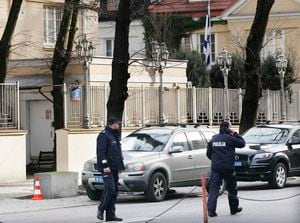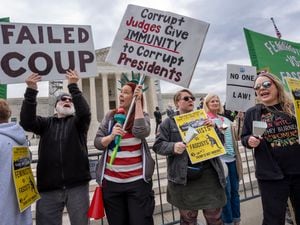Polish senate backs controversial Holocaust speech law
People could face up to three years in prison for intentionally attempting to falsely attribute the crimes of Nazi Germany to the Polish nation as a whole.

Poland’s senate has backed legislation that will regulate Holocaust speech, a move that has already strained relations with both Israel and the United States.
The bill proposed by Poland’s ruling conservative Law and Justice party could see individuals facing up to three years in prison for intentionally attempting to falsely attribute the crimes of Nazi Germany to the Polish nation as a whole. It was approved by the lower house last week.
Though the bill exempts artistic and research work, it has raised concerns that the Polish state will decide itself what it considers to be historic facts. The bill has already sparked a diplomatic dispute with Israel and drawn calls from the United States for a reconsideration.
Senators voted 57 to 23 in favour of the bill, with two abstentions. To become law, the bill requires approval from President Andrzej Duda, who supports it.

Expressing surprise at the storm the legislation has unleashed, the Polish government said it will issue an explanatory statement later.
Though deputy justice minister Patryk Jaki suggested Israel had been consulted on the bill and voiced no objections, many in Israel have argued that the move is an attempt to whitewash the role some Poles played in the killing of Jews during the Second World War.
Halina Birenbaum, a Holocaust survivor and acclaimed Israeli author, called the new law “madness,” telling Israel’s Army Radio it was “ludicrous and disproportionate to what actually happened to Jews there”.
Ms Birenbaum, a member of the International Auschwitz Committee, said she was concerned the Polish government “might arrest me there for what I’m saying now”.





